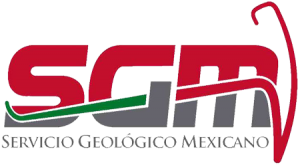(Reuters) – A $2.03 billion judgment in a lawsuit brought by shareholders of Southern Copper Corp should be overturned because a key witness from deal adviser Goldman Sachs Group Inc was excluded from the trial, lawyers challenging the ruling argued in Delaware’s Supreme Court on Thursday.
The judgment was awarded by Delaware Chancery Court Judge Leo Strine in October 2011 in a case brought by investors who accused Southern Copper of overpaying in the 2005 takeover of privately held Minera Mexico.
Goldman advised a special committee at Southern Peru Copper Corp, the predecessor of Southern Copper, that considered the acquisition. Both Southern Copper and Minera were controlled by Grupo Mexico, and Strine found that the directors of Southern Copper were coerced into vastly overpaying for Minera, which they acquired in 2005 for $3.1 billion in stock.
The Delaware Supreme Court was also asked to overturn a $304 million fee that Strine awarded to the shareholders’ attorneys, which by some measures is one of the biggest fees awarded by a court in a large securities litigation case.
The one-hour hearing in Dover focused mostly on the judgment rather than the fee. Most of the argument centered on Strine’s refusal to adjust the schedule to allow a Goldman Sachs banker, who is no longer at the bank, to testify at the trial.
The Goldman Sachs witness was expected to explain to the court how the Southern Copper special committee valued its own stock and that of Minera Mexico.
Goldman Sachs declined to comment.
Bruce Angiolillo, an attorney for the Grupo Mexico unit that appealed Strine’s ruling, zeroed in on the drawn-out nature of the case, which was filed in 2004 before the deal was closed but only came to trial in 2011. He asked why after so much time had passed that the Chancery Court could not tweak the schedule to hear from a key witness.
“Fundamentally, if you wait seven years to taste the bread, don’t blame the ingredients. And if you’re going to do that, you have to let the baker come in to court and explain the recipe,” said Angiolillo, of law firm Simpson Thacher.
“That’s why this should be reversed.”
Shareholder lawyer Robert Brown, of Prickett, Jones & Elliott of Wilmington, Delaware, argued that the defendants in the lower court said in post-trial briefs that the record regarding Goldman Sachs was complete, mooting the need for the witness’s testimony.
The lawsuit was brought as a derivative action, meaning shareholders step into the shoes of the company and the judgment benefits Southern Copper. Shareholders benefit only indirectly.
The case focused attention on Strine, who handed down the judgment just months after becoming the court’s first new chief judge in 14 years.
Strine made headlines earlier this year for his criticisms of Goldman Sachs’ conflicts of interest in a shareholder lawsuit involving the sale of El Paso, a pipeline operator.
Southern Copper also asked the high court to trim the legal fee, which totaled $35,000 per hour of work on the case. An attorney who argued to overturn the fee said the next-highest rate awarded by Delaware’s Court of Chancery worked out to less than $5,000 per hour.
He said a more appropriate fee would be in the tens of millions of dollars.
The fee will be split by the Prickett Jones firm and Kessler Topaz Meltzer & Check of Radnor, Pennsylvania.
Brown argued that the fee, which was awarded as 15 percent of the judgment, would act to incentivize plaintiffs’ attorneys to pursue the biggest award possible, rather than accepting a cheaper settlement, which guaranteed they would be paid.
Thursday’s oral arguments were monitored via Courtroom View Network’s Internet broadcast.
The Delaware Supreme Court normally rules on cases within 90 days.





















